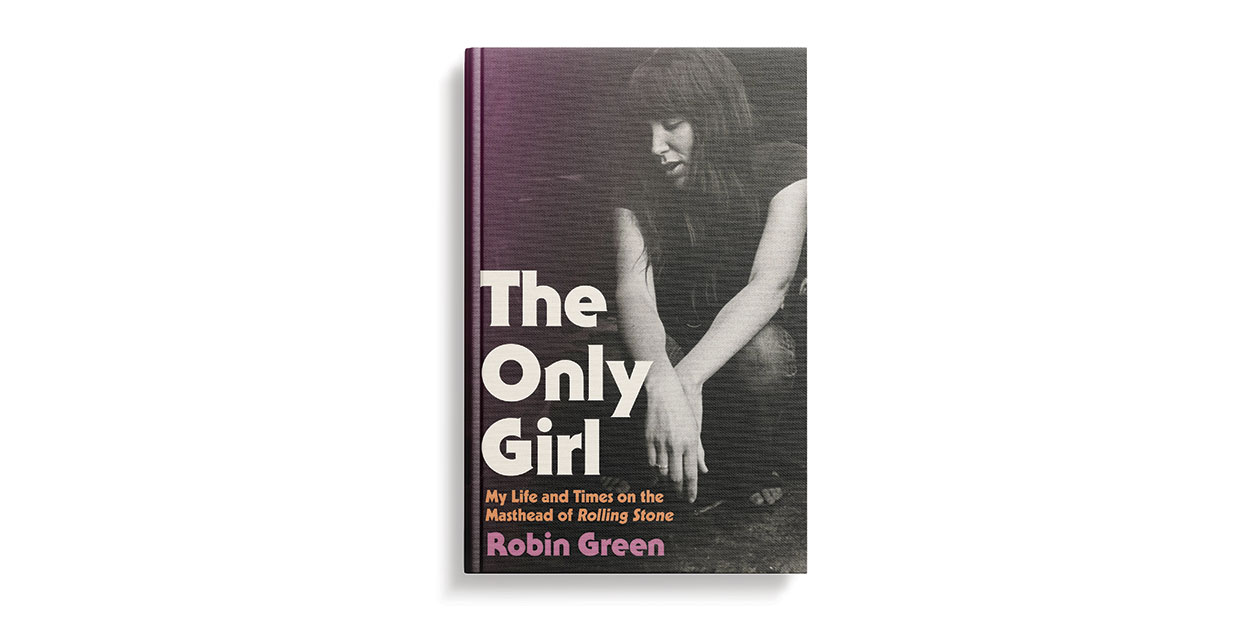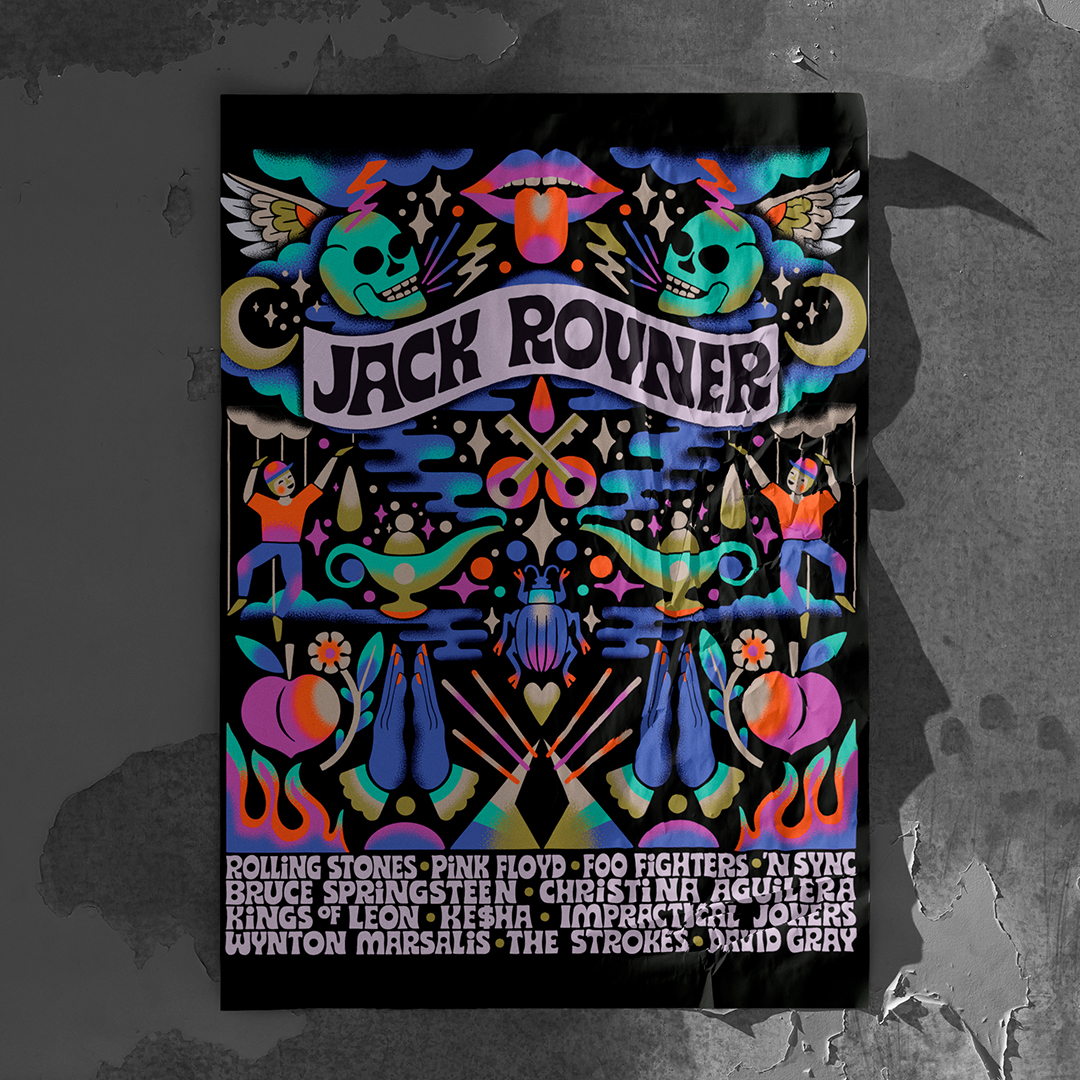IOWA Magazine | 06-23-2022
Robin Green Reflects on Shattering Rolling Stone's Glass Ceiling
By Leah Klevar
4 minute read
The music journalist turned TV producer was the magazine’s first female reporter in the ’70s.
As businessmen in suits and ties surged past, Robin Green (77MFA) stood on a bustling Manhattan sidewalk, staring at wavy-haired rocker Eric Clapton on the cover of Rolling Stone magazine. It was May 1968, and she was on lunch break from her job as a Marvel Comics editorial assistant. Though she liked working for legendary comic book writer Stan Lee, something about that photo left her craving more.
Listen to Robin Green reflect on shattering Rolling Stone’s glass ceiling.
“I remember looking at Eric Clapton and just wanting to know everything,” says Green. “I was interested in musicians’ thoughts, and I always read Rolling Stone front to back because music spoke to me.”
What the Providence, Rhode Island, native didn’t know then was that her own name soon would appear in the pages of this groundbreaking publication. In 1971, Green—who had a literature degree from Brown University and was the grandchild of Jewish immigrants from Russia and Hungary—became the only female contributing editor on the masthead of Rolling Stone, the rock-and-roll bible.
Decades later, after earning an MFA degree at the University of Iowa and embarking on a successful screenwriting career in film and television, Green published a 2018 tell-all, The Only Girl: My Life and Times on the Masthead of Rolling Stone, about her heady days in this boys’ club.
Green’s three years of reporting for the then-biweekly magazine on music, pop culture, and politics, took her—like Alice through the looking glass—into a topsy-turvy world. She found herself speeding down dark highways with iconic photographer Annie Liebovitz and gonzo journalist Hunter S. Thompson, traveling to a remote New Mexico ranch to interview drugged-out actor Dennis Hopper and his groupies, and journeying into the mind of teen heartthrob David Cassidy.
This unexpected adventure began with a box of homemade cookies and a Marvel comic, which Green dropped off at Rolling Stone for co-founder and publisher Jann Wenner, along with a letter of inquiry. She’d recently arrived in Berkeley—thanks to a spontaneous cross-country trek—and dreamed of working as Wenner’s secretary. However, Green’s deadpan humor charmed the mercurial magnate, and she left his office with an assignment to profile Marvel Comics instead. The gig promised 5 cents a word, no expenses paid. She returned with 10,000 words of a “love letter” to Stan Lee and his comics that became her first cover story—and jumpstarted her career.
“That $500 was more than I’d ever had at once,” says Green. “And Rolling Stone changed my life. I never thought I’d get to work there, but I did, and it was one big, stupid party.”
The magazine sent her, with notebook and bulky tape recorder in tow, in pursuit of everyone from the Bee Gees to Black Sabbath, and Green wrote a series of astute and ironic pieces that even caught the attention of her idol, author Joan Didion, who once phoned to compliment her work.
However, everything came to a screeching halt in 1974, when Wenner fired Green for failing to deliver on a Kennedy family profile. As she later revealed in her memoir, Green refused to write the story after she became too intimate with Robert Kennedy Jr. to claim objectivity. “I didn’t want to be a journalist forever,” she says. “Behaving badly was my way of quitting.”
Green credits that abrupt ending with sending her on a different path that eventually led to Iowa’s graduate program and Mitchell Burgess (78BA), her future husband and writing partner. The pair went on to produce and create award-winning shows such as The Sopranos and Blue Bloods, and Green has no regrets about leaving Rolling Stone behind. “It was a wild ride, but you gotta ‘know when to hold ’em and when to fold ’em,’” she says. “There’s a song for everything.”
 ILLUSTRATION: SCOTT BIERSACK
ILLUSTRATION: SCOTT BIERSACK
 The Only Girl: My Life and Times on the Masthead of Rolling Stone by Robin Green (77MFA), Little, Brown and Company, 305 pp.
The Only Girl: My Life and Times on the Masthead of Rolling Stone by Robin Green (77MFA), Little, Brown and Company, 305 pp.
More Iowa Grads in the Music Industry:

Lollapalooza Co-Founder Don Muller Guides Rock Royalty
Meet the powerhouse music agent who represents some of rock’s biggest acts—including the Foo Fighters, Pearl Jam, Red Hot Chili Peppers, and Beastie Boys—and helped create an iconic music festival.

YouTube’s Tuma Basa is a Hip-Hop Trendsetter
The director of Black music and culture at YouTube, Basa is at the forefront of music’s digital evolution. He credits the latest streaming technologies with shifting control away from the industry’s traditional gatekeepers and creating more equal access for Black musicians.

From Bon Jovi to Kesha, Jack Rovner Manages Megawatt Careers
A Grateful Dead concert at the UI Field House in 1973 ignited an Iowa alum’s remarkable career in music. Today, Jack Rovner is co-president of Vector Management, one of the nation’s most successful artist management companies.

Up-and-Coming Musician Sam Rae Charts New Territory
This classically trained cellist and Iowa City native once grappled with stage fright as a UI student. Learn how Sam Rae found her footing on stage as a touring musician with Grammy Award-winner Brandi Carlile before launching her own alt-folk solo career.
Join our email list
Get the latest news and information for alumni, fans, and friends of the University of Iowa.
Join our email list
Get the latest news and information for alumni, fans, and friends of the University of Iowa.

